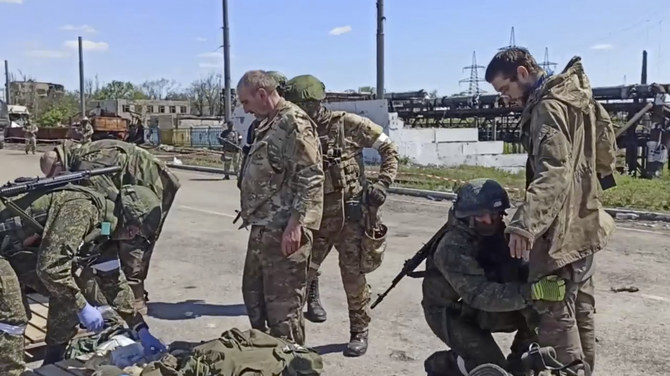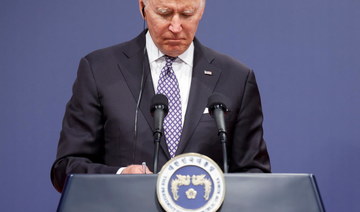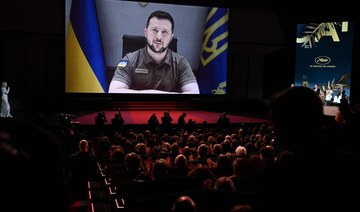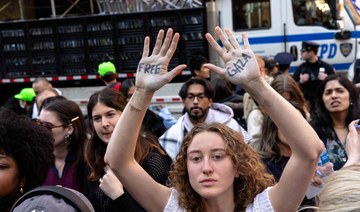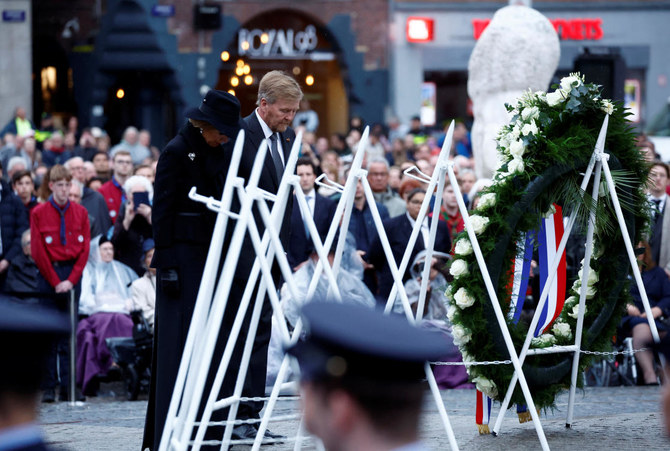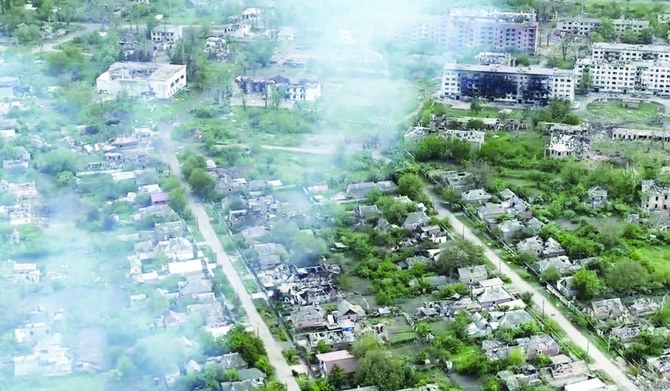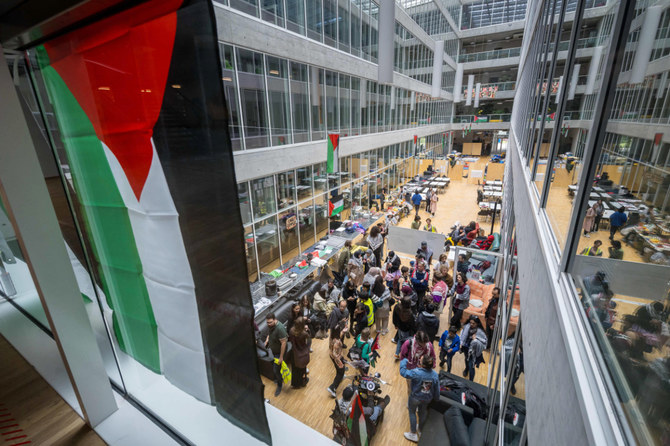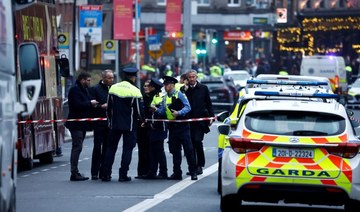KYIV: Ukraine ruled out a cease-fire or any territorial concessions to Moscow while Russia intensified its attack in the eastern Donbas region and stopped sending gas to Finland in its latest response to Western sanctions and its deepening international isolation.
Polish President Andrzej Duda told Ukraine’s parliament that ceding even “one inch” of the country’s territory would be a blow to the whole West and reassured Kyiv of Warsaw’s strong backing for its European Union membership bid.
“Worrying voices have appeared, saying that Ukraine should give in to (President Vladimir) Putin’s demands,” Duda said, the first foreign leader to address Ukrainian lawmakers in person since Russia’s Feb. 24 invasion.
“Only Ukraine has the right to decide about its future.”
After ending weeks of resistance by the last Ukrainian fighters in the strategic southeastern port of Mariupol, Russia is waging a major offensive in Luhansk, one of two provinces in Donbas.
Russian-backed separatists already controlled parts of Luhansk and the neighboring Donetsk province before the invasion, but Moscow wants to seize the remaining Ukrainian-held territory in the region.
On the Donetsk frontline, Russian forces were trying to break through Ukrainian defenses to reach the administrative borders of the Luhansk region, while further north they continued heavy shelling of Sievierodonetsk and Lysychansk, Ukraine’s general staff said in its daily update on Sunday.
Sievierodonetsk and its twin Lysychansk across the Siverskiy Donets River form the eastern part of a Ukrainian-held pocket that Russia has been trying to overrun since mid-April after failing to capture Kyiv and shifting its focus to the east and south of the country.
The British Defense Ministry said on Sunday that Russia was deploying its BMP-T “Terminator” tank-support vehicles in that offensive. With only 10 available for a unit that already suffered heavy losses in the failed attempt on Kyiv, however, the ministry said they were “unlikely to have a significant impact.”
Ukraine’s lead negotiator, speaking to Reuters on Saturday, ruled out a cease-fire or any deal with Moscow that involved ceding territory. Making concessions would backfire because Russia would hit back harder after any break in fighting, Zelensky’s adviser Mykhailo Podolyak said.
“The war will not stop. It will just be put on pause for some time,” Podolyak said in an interview in the heavily guarded presidential office. “They’ll start a new offensive, even more bloody and large-scale.”
Recent calls for an immediate cease-fire have come from US Defense Secretary Lloyd Austin and Italian Prime Minister Mario Draghi.
The end of fighting in Mariupol, the biggest city Russia has captured, gives Russian President Vladimir Putin a rare victory after a series of setbacks in nearly three months of combat.
The last Ukrainian forces holed up Mariupol’s vast Azovstal steelworks have surrendered, the Russian defense ministry said on Friday. While Ukraine has not confirmed all its forces have left, the commander of the Azov regiment, one of the units in the factory, said in a video that Ukraine’s military command had ordered the forces in Mariupol to stand down in order to preserve their lives.
Full control of Mariupol gives Russia command of a land route linking the Crimean Peninsula, which Moscow seized in 2014, with mainland Russia and parts of eastern Ukraine held by pro-Russia separatists.
Gas dispute
Russian state gas company Gazprom said on Saturday it had halted gas exports to Finland, which has refused Moscow’s demands to pay in roubles for Russian gas after Western countries imposed sanctions over the invasion.
Finland said it was prepared for the cutoff of Russian flows. It applied together with its Nordic neighbor Sweden on Wednesday to join the NATO military alliance, although that is facing resistance from NATO member Turkey.
Most European supply contracts are denominated in euros or dollars. Last month, Moscow cut off gas to Bulgaria and Poland after they rejected the new terms.
Western nations have also stepped up weapons supplies to Ukraine. On Saturday, Kyiv got another huge boost when US President Joe Biden signed a bill to provide nearly $40 billion in military, economic and humanitarian aid.
Moscow says Western sanctions, along with arms deliveries for Kyiv, amount to a “proxy war” by the United States and its allies.
Putin calls the invasion a “special military operation” to disarm Ukraine and rid it of radical anti-Russian nationalists. Ukraine and its allies have dismissed that as a baseless pretext for the war, which has killed thousands of people in Ukraine, displaced millions and shattered cities.
Zelensky said he stressed the importance of more sanctions on Russia and unblocking Ukrainian ports in a call with Italy’s Draghi on Saturday.



